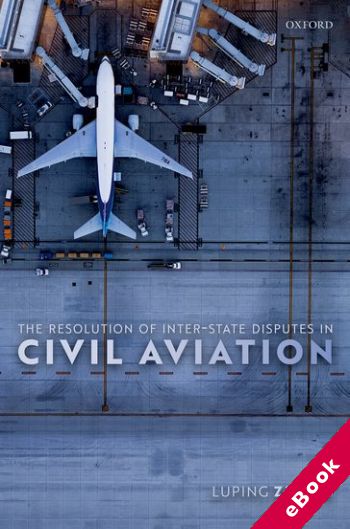
The device(s) you use to access the eBook content must be authorized with an Adobe ID before you download the product otherwise it will fail to register correctly.
For further information see https://www.wildy.com/ebook-formats
Once the order is confirmed an automated e-mail will be sent to you to allow you to download the eBook.
All eBooks are supplied firm sale and cannot be returned. If you believe there is a fault with your eBook then contact us on ebooks@wildy.com and we will help in resolving the issue. This does not affect your statutory rights.
In this book, Dr Luping Zhang investigates dispute resolution mechanisms in international civil aviation with a primary focus on the functions of the International Civil Aviation Organization (ICAO) Council. The ICAO was created as a result of the Convention on International Civil Aviation (Chicago Convention) laying the foundations for these dispute resolution mechanisms in international civil aviation, although it neglected to cover economic regulations. Over the years there has been a proliferation of bilateral Air Services Agreements (ASA)s and multilateral treaties. With the advancement of aviation technology, The Resolution of Inter-State Disputes in Civil Aviation considers whether dispute resolution mechanisms should be modernised, and if so, what form this modernisation might take.
It explores this through five chapters: the first chapter defines the scope of the research and introduces the methodology. The second chapter traces the evolution of dispute resolution clauses under both multilateral air law treaties and bilateral ASAs, with the most up-to-date data. The third chapter analyses how disputes brought forward in relation to the treaties in Chapter II are resolved in practice. The fourth chapter builds on empirical evidence to critically assesses the political and legal implications of settling international aviation disputes. The final chapter proposes a model for reform based on this cumulative research, introducing a proposal for amending rules and procedures in the ICAO, as well as for the establishment of a new arbitral institution.